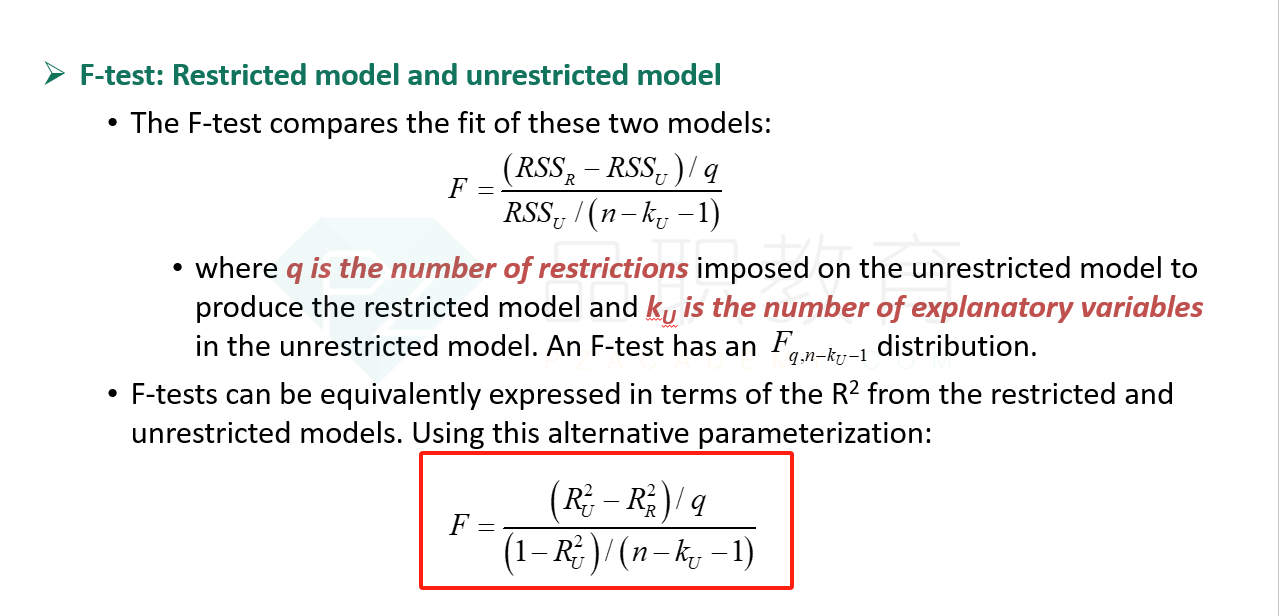NO.PZ2020010801000025
问题如下:
A model was estimated using daily data from the S&P 500 from 1977 until 2017 which included five day-of-the-week dummies (n = 10,087). The from this regression was 0.000599. Is there evidence that the mean varies with the day of the week?
选项:
解释:
The model estimated is
,
where Di is a dummy that takes the value 1 if the index of the weekday is i (e.g., Monday = 1, Tuesday = 2, c). The restriction is that
so there this is no day-of-the-week effect. This model can be equivalently written as
,
therefore, here the null is
.
In the two models, , and . The second form of the model is a more standard null for an F-stat.
The F-stat of the regression is
The distribution is an and the critical value using a 5% size is 2.37. The test statistic is less than the critical value, therefore, the null that all effects are 0 is not rejected.
请问一下F检验分子不是应该等于(Unrestricted R 2 - Restricted R2)/q 吗。题目说了unrestricted R2但并没有说restricted R2是多少。为什么公式里面直接就把restricted R2 忽略掉了呢





